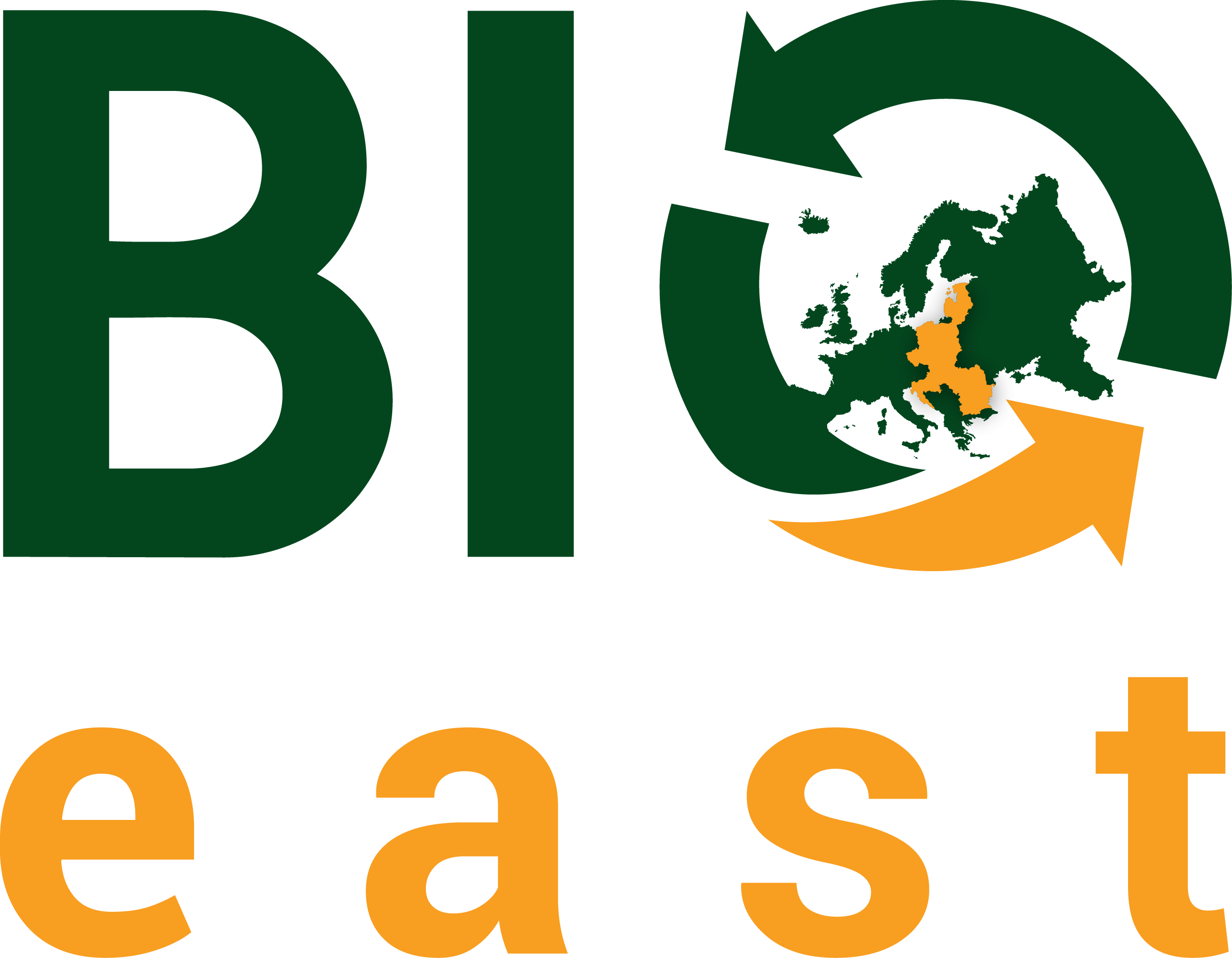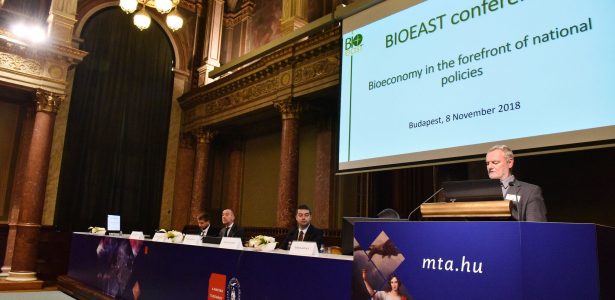BIOEAST conference „Bioeconomy in the forefront of national policies” during the Science Festival (MTÜ) in Hungary on 8 November 2018
BIOEAST conference – Bioeconomy in the forefront of national policies
Organizers: Ministry of Agriculture and the Hungarian Academy of Sciences
Venue: Hungarian Academy of Sciences, Budapest
8 November 2018
Summary
The high-level international BIOEAST conference was organised jointly by the Ministry of Agriculture and the Hungarian Academy of Sciences as part of the Hungarian Science Festival on 8 November 2018 and focused on the situation, challenges and opportunities of bioeconomy of the BIOEAST macro-region.
Over 120 participants came to the conference in Budapest from nearly 20 European countries. Besides researchers, high-level officials from the EU Commission, representatives of politics and administration, representatives of international organizations and companies, development professionals and farmers were present at the event.
The main aim of the conference was to present and validate the macro-regional and sector-specific strategic research and innovation thematic areas which will allow a more effective contribution to the strategic planning of Horizon 2020 and Horizon Europe framework programmes’ objectives in the future.
The welcome speeches by secretary of state Dr. Zsolt Feldman and deputy secretary of state Ádám Szigeti conveyed the message that in Hungary the Ministry of Agriculture and the Ministry of Innovation and Technology have strong political will to support the moving towards bioeconomy.
The European Commission’s Director-General for Research and Innovation, Mr Jean-Eric Paquet presented the new framework programme, expressed his positive response to the BIOEAST Initiative and confirmed that in the future, the EU would like to support the further development of the Central and Eastern European initiative with several actions. This is clearly shown in the revised EU Bioeconomy strategy published on 11 October 2018 which refers to the BIOEAST intitative at several points.
The presentations of the following 1st session demonstrated and analyzed the trends and particularities of the macro-region’s bioeconomy. Based on various indicators Central- and Eastern Europe is rich in biomass due to its extensive activities in the fields of agriculture, forestry and fishery, still its unused or under-utilized biomass capacity is high whether it is food, feed, industrial raw material, biofuel or energy utilization. It is clear that the Central-and Eastern-European countries are far behind the Western-European ones in framing their strategic development goals and shaping of value chains for a better biomass processing. There are significant differences between the individual countries in regard to the relevance of the different sectors, however, prevalence of primary production and its deficient effectiveness is a common problem. Therefore it is of high relevance for the future that these countries achieve substantial results both in intensification of production and in added value increase. It is important to recognize that amplification of research and innovation is the route that leads in that direction.
The presentations of the 2nd session aimed to draw attention to challenges and scopes that have a key role in the development and forming of the macro-region’s bioeconomy. Such priority topics include agricultural knowledge and innovation systems, freshwater aquaculture, forestry, sustainable production and biomass processing. Central-and Eastern-European countries have to find those new and innovative solutions that can address the diverse claims of sustainability, competitiveness, and rural job creation in accordance with their exposure to the impacts of climate change. As a promising development the first BIOEAST forestry working group was founded and introduced which is going to help to find the special research needs of the macro-region and make them visible.
The 3rd sessions concentrated on the shaping and financing of the partnerships. Results and opportunities as well as conclusions drawn from good examples presented in this section shall encourage countries of the BIOEAST initiative. It’s easy to see the clear and strong conviction of the different actors that processes concerning production and use of biomass must be deeply revised and that serious changes must be made both in production and processing and, in regulatory systems, too. The most important message of the session is that serious changes need to be launched at the level of education, training and regulatory systems, and knowledge flow and private and public-sector cooperation shall be promoted. In order to do this state involvement is indispensable.
In addition to the information provided, the conference offered a good opportunity to establish new relationships, networking and development, which is also a crucial issue for BIOEAST countries.
The Ministry of Agriculture and the Hungarian Academy of Sciences thank all the speakers and participants for contributing to the success of the event.

